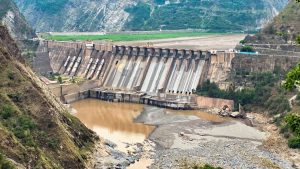Desperate Pakistan begs India to restore Indus Waters Treaty amid growing water crisis

To avenge the Pahalgam terrorist attack April 22, India took a decisive step against Pakistan that intensified its desperation. India decided to suspend the Indus Waters Treaty (IWT) of 1960, meaning Pakistan would no longer have control over the flow of the Indus River passing through India. This triggered panic among Pakistan’s leadership. Pakistan’s Water Resources Ministry sent a letter to India’s Jal Shakti Ministry, appealing for a reconsideration of the decision to suspend the treaty. But India firmly said ‘no,’ a clear rejection of the request.
‘Blood and water cannot flow together’: PM Modi
While addressing the nation, Prime Minister Narendra Modi sent a direct message to Pakistan: “Blood and water cannot flow together.” He emphasized that until Pakistan stops supporting terrorism, there can be no talks, no trade, and now, no sharing of water. This strong stance is not just a retaliatory move but a reflection of a new foreign policy—one of zero tolerance for terror.
Tensions escalate after Operation Sindoor
On May 7, India launched Operation Sindoor, destroying nine terrorist hideouts in Pakistan and Pakistan-occupied Kashmir (PoK). India made it clear that the Indus Waters Treaty will remain suspended until Pakistan completely halts its support for cross-border terrorism.
What is the Indus Waters Treaty?
The Indus Waters Treaty was signed in 1960 between India and Pakistan, brokered by the World Bank. Under the agreement, India was allowed to use only 30% of the Indus waters, while Pakistan received 70%. The treaty remained in force for decades as India honored it on humanitarian and peaceful grounds. But now, the circumstances have changed.
News